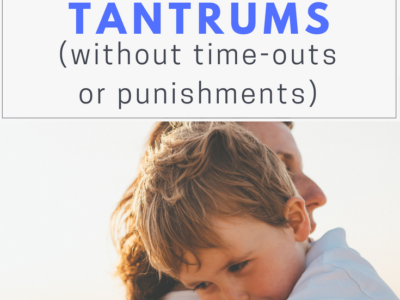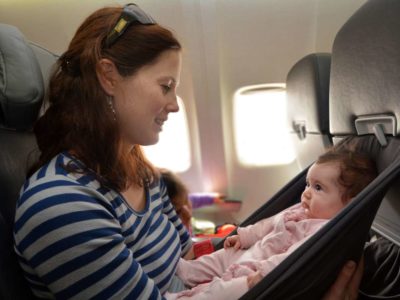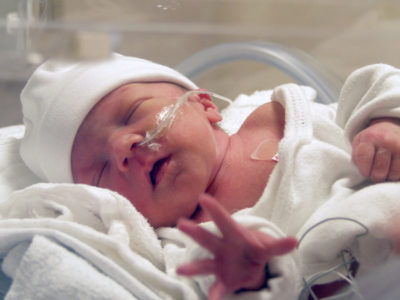
There are numerous phases of your child’s growth and development that happen with every kid so as to arrive at adulthood. A kid will experience the starting phases of child development quickly as they make an effort to perceive their parents, figure out how to turn over, hold their head up, and in the long run slither, pull up, sit up, and walk.
It’s critical to comprehend the numerous phases of improvement of the child so as to understand the development, incapacities, conditions, and maladies just as to quantify individual and physical development as well.
There are numerous hypotheses of the phases of improvement of the kid. They incorporate Sigmund Freud who accepted that child development depended on sexuality. Taking everything into account this hypothesis makes the idea that if a kid doesn’t meet and complete each phase of sexuality, it could impact the practices and characters they take on as grown-ups.
The following hypothesis of the phases of child development is by Erik Erikson who accepted that each phase of a child’s development depends on defeating a contention. It is dictated by a kid’s prosperity or inability to grow in like manner.
Social speculations, for example, those created by John Bowlby accepted that the phases of child development are influenced by the relationship that a kid has with their parents, including guardians, educators, and others.
Albert Bandura was an analyst who likewise accepted that socialization assumed a job in phases of child development. This hypothesis reasons that if a child watches others, they learn practices and impersonates the aptitudes, Parents, and companions assume a job in how the kid demonstrations since they will carry on what they see.
The advancement of the kid is significant throughout everyday life. Without these formative abilities, a youngster will just set down and can’t do whatever else. They don’t advance to get autonomous and can’t fathom anything since they don’t get the hang of anything. Phases of improvement of the youngster start the following birth and keep on multiplying in worthiness until they arrive at adulthood. Despite the fact that there are numerous investigations out there on how a youngster picks up, nothing analyzes to the genuine turn of events and experience of a kid.
At the point when a kid is raised in a steady domain and demonstrated love, consideration, and control just as consolation and comprehension, they can grow up to turn out to be balanced grown-ups. Anyway during the phases of the advancement of the kid, on the off chance that a youngster doesn’t get the entirety of this, at that point they may consistently feel as if they are missing something or lacking something significant.
Moreover, we are living in a profoundly pressurized and serious world. There are more individuals and fewer employments and so as to contend and get by in this world our kids should be as profoundly taught as could reasonably be expected. This has driven guardians to pressurize play-schools and nursery schools to start training kids perusing, composing, and number juggling with the expectation that they will be more ready for formal tutoring when they enter grade 1.
Slicing playtime to invest more energy and exertion on formal learning resembles saying to your developer that you need him to renounce the establishments however invest additional time, cash and exertion in making a lovely, tall, smooth structure. The principal high breezes or earth tremor will shake the structure to the ground. Play is a kid’s learning establishment. Play isn’t just a method of investing time, nor is it even only a method of using overabundance vitality with the goal that the kid can sit still and tune in class.
Lev Vygotsky was very notable and regarded for his work in investigating how youngsters learn and the best techniques to guarantee that genuine adapting really occurs. He said that “in play, it is just as he [the child] were a head taller than himself. As in the focal point of an amplifying glass, play contains every single formative propensity in a consolidated structure; in play, it is as if the kid were attempting to bounce over the degree of his typical conduct.” What he is stating here is that in play, a kid uses and practices his aptitudes, extending himself into the following formative stage
When people see children running and climbing and can unmistakably observe that they are building up their muscle quality, coordination and parity. Guardians need their kids to rapidly move from doing this in free play to taking an interest in composed games. While the composed game is useful for kids, if the kid’s gross engine action turns out to be too managed too early, he will spend significant time in certain developments (those particular to his games) and pass up the improvement of others, (for example, climbing trees). The more different a kid’s physical play can be, the more possible he has of building up his muscles and by and large coordination in a fair manner. He is less inclined to grow early close ligaments ( I see numerous kids with tight ligaments at the rear of the knees) and more averse to create feeble center muscles (we are seeing an ever-increasing number of small kids strolling around with poor stance because of frail center muscles).
Developing fine motor skills means beginning to figure out how to utilize a pencil before you have created finger and thumb quality and strength brings about a youngster building up a wasteful pencil hold. At the point when a kid has powerless thumb stabilizers, he is probably going to fold his thumb over his pointer to attempt to make more prominent security. This makes it hard for him to then build up the fundamental finger seclusion (separate development of the fingers to give simple, dextrous pencil control). Kids who have not yet built up their wrist solidness will attempt to utilize entire arm developments to do their drawings and composing and will press exceptionally hard. On the off chance that a kid has not built up the reciprocal mix (this occurs in the cerebrum and is the smooth, productive correspondence of the correct side of the mind with the left) cutting will be troublesome and he will experience issues composing over his page and perusing over a page or educational committee. Starting to utilize a pencil too early accordingly represses learning in a conventional class setting, instead of helping it.
How might we build up all these fine motor developments? Grappling ropes and trees and swinging from “playground equipment” fabricates center quality, shoulder support quality, wrist and hand quality, and two-sided joining. A youngster who is urged to try different things with earth, tearing paper, finger-painting, and painting with variously estimated wipes is rehearsing his fine engine abilities and setting up his hands to adapt well to a pencil.
Tangible Integration: Children who have a chance to play with various media and in various tactile settings are better ready to build up their tactile frameworks. Permitting a kid to invest energy in the tangible situations he finds generally agreeable, invigorates him the inward to adapt to those he discovers all the more testing and afterward step by step fabricate his tactile framework to have the option to adapt to them.
Visual perceptual aptitudes: Visual recognition creates through a youngster’s cooperation with his condition. At the point when a kid extends his arm to arrive at a high branch or moves through a passage in a deterrent course, he is building up his spatial recognition. Shape observation is created by a kid getting a handle on and controlling a wide range of articles in play. At the point when he can’t discover the toy he needs and needs to look for it in his toy-box, he is creating figure-ground observation.
Verbal abilities and Language: Children playing are continually talking, either with themselves, clarifying the parts of the fanciful circumstance, or with different youngsters included. Specialists have discovered that less verbal kids talk more during nonexistent play. In the fanciful play, youngsters are in this manner exploring different avenues regarding and building up their language and relational abilities.
Playing fun games where word sounds are changed, learning senseless rhymes, and making up gibberish words assists youngsters with building up their phonics abilities and sound-related handling. In the event that these are essentially instructed in a conventional manner, the kid feels no genuine possession and thinks that it’s harder to recollect all the various sounds the composed letters speak to. In the event that he messes around and tries different things with the sounds in words, his sentiment of being in charge of the words and the sounds is more noteworthy, making it simpler for him to learn and recall his phonics. He builds up a real idea of how sounds make up words.
Thinking aptitudes (insight): Thinking is a sort of “internal discourse”. We talk quietly to ourselves to thoroughly consider things and tackle issues. Youngsters in inventive play start to build up this aptitude through talking so anyone might hear and clarifying everything that is occurring in the game. (Think about the kids playing in the “home corner” in your playschool and how they guide one another and converse with the dolls and teddies). Gradually, as they become increasingly drilled, this talking changes to become “inward discourse” (they think it yet doesn’t state it for all to hear). This is a significant establishment for creating thinking and thinking abilities.
We additionally realize that telling a kid the best way to accomplish something has a far less instructive effect on him than furnishing him with the material and permitting him to play and try and find for himself.
Perusing: To understand well, a kid needs to have built up the capacity to see the different sounds in words. He additionally should have the option to perceive likenesses and contrasts in how words sound (eg: rhyming words or words that sound the equivalent however have various implications). Attempting to gain proficiency with these in a conventional setting is overwhelming and expels the opportunity of the child feeling that he can take responsibility for; rather he feels that words are foisted upon him and outside of his control.
Perusing additionally needs great visual perceptual aptitudes. Shape recognition permits us to perceive the likenesses and contrasts looking like letters. Figure-ground discernment is should have been ready to see the different words on the page and the different letters in the words. Spatial observation permits us to see where a single word begins and other closures and what direction cycle a letter must face.
We utilize two eyes to peruse and the piece of our cerebrum that builds up our language and sound-related procedures is on the contrary side to where our visual observation creates. We need visual recognition to perceive the composed letters and sound-related handling to change over them to the sounds and words they speak to. Accordingly, we need great correspondence between the two sides of the cerebrum; this is reciprocal reconciliation. Youngsters start to create respective joining through the development and playing in their condition with various items and impediments.
Passionate: I think each parent needs their kid to be sincerely satisfied and stable, to have a solid feeling of self-esteem and confidence. The inventive play offers kids the chance to work through parts of their lives they are battling with. It permits them space where to inspect and change and limit outcomes of their own activities and examination with various final products to circumstances. This playing enables youngsters “to work through” troublesome passionate circumstances and to create positive adapting methodologies.
Social aptitudes: Play gives kids practice in the craft of bargain. You will frequently hear kids in innovative play, contending and bantering about who gets which job or how the job should be played and if it’s satisfactory to act in that manner in a specific job. They are trying different things with and attempting to comprehend the social guidelines of their reality. They likewise figure out how to share and to alternate and to help one another.
Play creates through genuinely standard stages and each stage is a fundamental forerunner for the following. These stages give the key establishments to our youngsters to turn out to be decidedly ready to adapt to the physical, subjective, enthusiastic and social requests of formal tutoring. Hurrying kids through the various stages, doesn’t mean they accomplish school status snappier; it implies they miss out on the formative window to create most grounded establishments.
Making a steady domain is perfect yet it isn’t generally conceivable. In any case, if a kid has consistency when they can’t have the solidness they will have the option to finish the numerous phases of child development without intricacies. Every child is extraordinary and ought to be treated with love, care and respect. What works for one child doesn’t really work for another.
In this way, in the event that you are countering social issues with one kid and not with the kin, perhaps the youngster needs more consideration or requires proficient assistance to comprehend the fundamental explanations behind the unpredictable standards of conduct.










 11 Ways To Help Sleep Your Baby Better
11 Ways To Help Sleep Your Baby Better  DESIGN YOUR BABY’S NURSERY IN SIX SIMPLE STEPS
DESIGN YOUR BABY’S NURSERY IN SIX SIMPLE STEPS  15 Things Kids Want from Their Parents
15 Things Kids Want from Their Parents  All About Babies with Down Syndrome
All About Babies with Down Syndrome